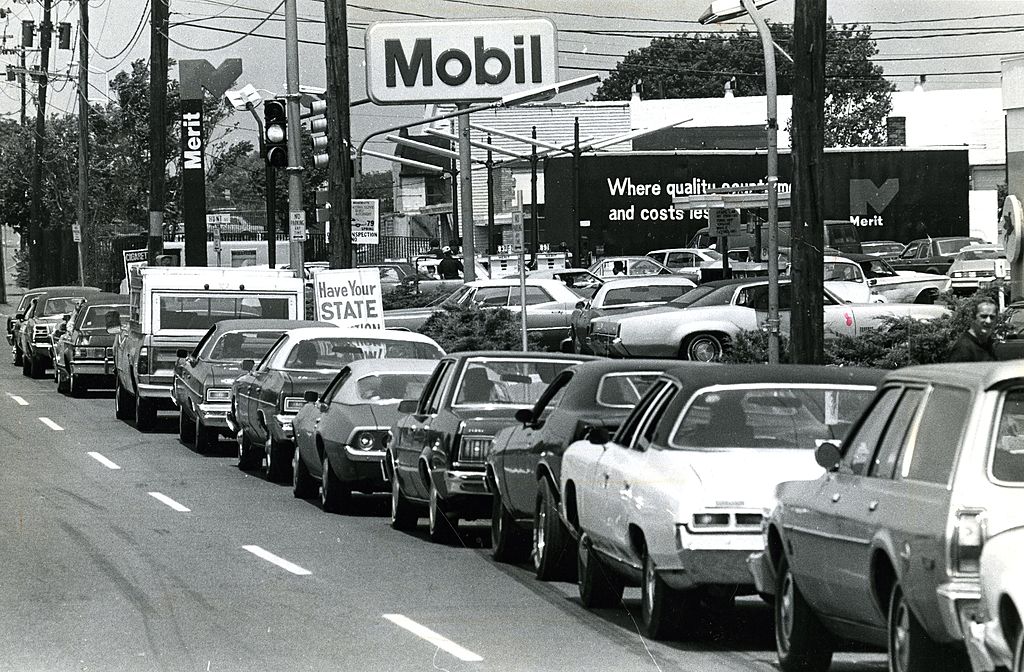“Remembrance of things past is not necessarily the remembrance of things as they were.”—Marcel Proust
Nostalgia, a term that originated as a medical diagnosis for Swiss mercenaries suffering from homesickness, is the sorrowful longing for a lost past. An April Pew survey found that nearly 6 out of 10 Americans (58 percent) think the country was better off for people like them 50 years ago. For Republican and Republican-leaning respondents, nostalgia for the early 1970s reached 72 percent.
This is bad—but not for the reasons you might think. First, some context. In 1939, Gallup found that 62 percent of Americans thought people were better off in the horse-and-buggy era (though only 25 percent said they’d actually want to live then).
Indeed, Americans have always had a thing for the “good old days.” The problem is that what—or when—constitutes the “good old days” is a constantly moving target. It often seems to be about five decades earlier from right now.
Karlyn Bowman studies public opinion at the American Enterprise Institute. She found that in recent surveys the 1980s and 1990s are starting to supplant the 1950s as the new “good old days.” You can see evidence for this all over the place in popular culture, from the remakes of old sitcoms to original offerings like Stranger Things that cast those years as a lost time of innocence.
But take it from someone who was there, Americans were pining for the good old days back then, too. I grew up on Happy Days and, later, Back to the Future. In the early 1990s, it was The Wonder Years, which was set in the 1960s. The 2021 reboot of The Wonder Years is also set in the 1960s, which is now nearly 60 years ago.
Indeed, in the ’80s and ’90s, popular culture was shot through with baby boomer and Gen X angst about contemporary society. The Big Chill, Grand Canyon, Thirtysomething, Reality Bites, American Beauty, Singles, and Fight Club were premised on the idea that life was unsatisfying because it lacked purpose—or something. And don’t even get me started on such themes in music.
The simple fact is that nostalgia is a constant in American history. Indeed, it started being a potent force in American politics right when the founding generation died out. Andrew Jackson’s populism played to it. When he vetoed the effort to recharter the Second Bank of the United States, he declared he was doing so to “revive that devoted patriotism and spirit of compromise which distinguished the sages of the Revolution and the fathers of our Union.” Not quite as pithy as “Make America Great Again” but you get the point.
Politicians play on nostalgia because it is one of the most powerful human emotions. My hunch is that many people confuse their own gauzy memories of their personal life with a narcissistic and ideological indictment of today.
I look fondly at my 1970s childhood, but it would be ludicrous for me to think such fondness was proof the country was doing better. When Americans say things were better 50 years ago, do they mean the runaway “stagflation”—high inflation plus low growth? The gas lines? The Vietnam War? Watergate?
We hear a lot about rising crime these days. It’s a legitimate issue, but perhaps we’re nostalgic for the 1970s and 1980s not just because crime gets so much coverage but also because we’ve memory-holed the fact that crime was so much worse (maybe the lead poisoning from those days caused amnesia?). Violent crime exploded in those decades and has been trending mostly downward since 1993. In an 18-month period from 1971-72, according to the FBI, there were an average of five terrorist bombings per day. In 1976, an FBI spokesman described San Francisco as the “Belfast of North America.”
Americans are richer today than decades ago. Adjusted for purchasing power, Mississippians—who live in our poorest state—have higher incomes than the French. We live longer, have more free time, and travel more affordably. Infant mortality has been cut in half, our air and water quality is vastly improved. Our cars are much better and much safer. Our homes are bigger and more comfortable. The number of people injured or killed on the job has plummeted. We’ve made real progress against racism in the last several decades.
None of this is to say today is perfect. Nor is it to say that everything has gotten better. Rather, it’s just to note that nostalgia is a terrible guide, because it tends to take progress for granted and replaces feelings for memory. Any politician who actually delivered the reality of the “good old days” would be pelted from office. Which is why it’s a good thing they can’t deliver on such promises.







Please note that we at The Dispatch hold ourselves, our work, and our commenters to a higher standard than other places on the internet. We welcome comments that foster genuine debate or discussion—including comments critical of us or our work—but responses that include ad hominem attacks on fellow Dispatch members or are intended to stoke fear and anger may be moderated.
With your membership, you only have the ability to comment on The Morning Dispatch articles. Consider upgrading to join the conversation everywhere.